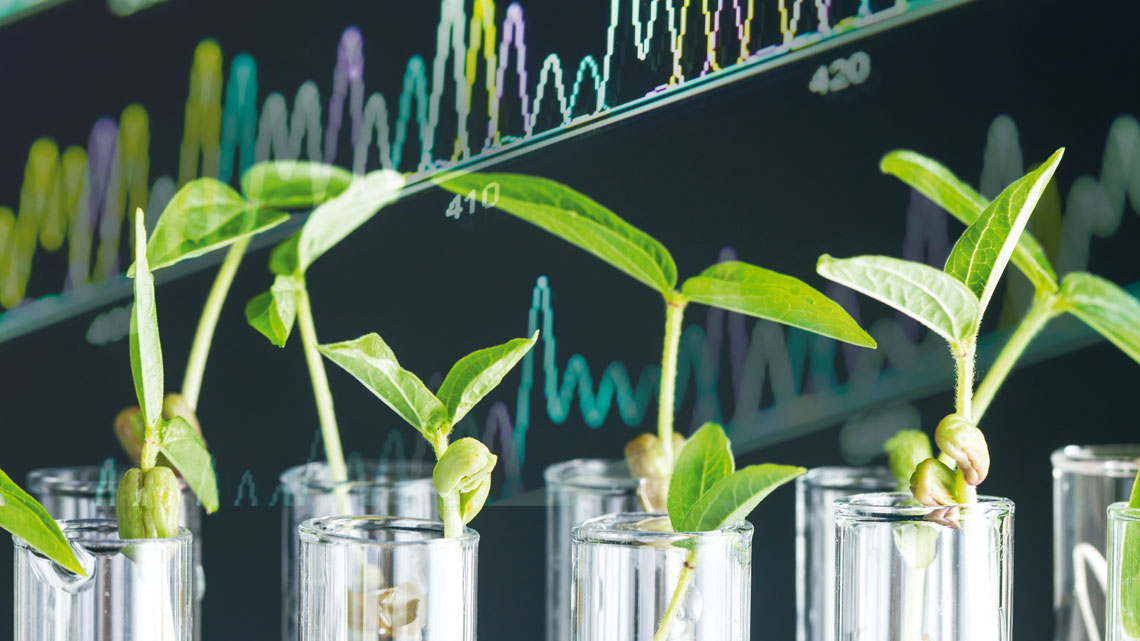What Germans think about bioeconomy
The majority of Germans are in favor of sustainable economic activity, but still have difficulty making sacrifices. This is shown by the latest TechnikRadar conducted by acatech and the Körber Stiftung.

What do Germans think about technology? This is what the TechnikRadar from acatech and the Körber Stiftung has been investigating since 2018. The third issue of the magazine focused on the bioeconomy for the first time. In a representative survey last autumn, around 2,000 people were asked about the biobased economy. The conclusion: the majority of Germans are in favor of bioeconomic change. However, many people still have difficulties with personal restrictions.
Climate and environmental protection are necessary
On issues of climate and environmental protection, the position was clear: 70.2% were in support of Germany leading by example in climate protection. 74.4% also considered it necessary to reduce consumption to protect the environment. When asked about concrete measures, however, the picture was different: Only 29.5% of those surveyed would be prepared to give up their cars for the sake of the environment, and only 40% would therefore eat less meat.
"We can see that sustainable management is fundamentally important to Germans. However, opinion formation on the bioeconomy is still in its beginnings," comments Tatjana König, member of the Executive Board of the Körber Stiftung. König sees this as an opportunity "to take people with us to look at the enormous potential, but also possible side effects" and advocates "more knowledge transfer" and a debate on an equal footing with the developers of corresponding technologies.
Attitude towards bioplastics and biofuel mainly positive
A clear majority of 88.4% were in favor of replacing conventional plastics with bioeconomic products made from renewable resources. Half of the respondents expect this to lead to greater independence from the oil market and a competitive advantage for the German economy. The opinion was also mainly positive for biofuels. According to the survey, 76.8% think it makes sense to use biological waste and residual materials for fuels and to promote this development. Nevertheless, only a few respondents (42.1%) would welcome a biofuel production plant in their neighborhood.
TechnikRadar 2020
The TechnikRadar 2020 focuses for the first time on the bioeconomy and reflects the attitude of Germans towards the biobased economy. More information on the study can be found here:
Skepticism about laboratory meat and green genetic engineering
The TechnikRadar also shows a differentiated picture in the areas of nutrition and genetic engineering. Only 40% are of the opinion that the world's food supply can be ensured by doing without meat. For 57.8% of those surveyed, meat bred in the laboratory from animal stem cells is also not a suitable alternative for securing global nutrition and protecting the climate.
Opinions are also divided on green genetic engineering, which is being discussed in connection with the bioeconomy. In this form of breeding, genes of one's own or an alien species are incorporated into the genome of plants in order to make them more resistant to diseases and extreme weather conditions and improve crop yields. Only 14.9% of Germans are in favor of green genetic engineering. In contrast, conventional crossing methods meet with greater approval (59.7%).
Change of heart through corona crisis?
Head of studies Ortwin Renn, acatech board member and scientific director at the Institute for Advanced Sustainability Studies (IASS) Potsdam, is convinced that the corona crisis has not fundamentally changed the Germans' attitude to the bioeconomy. "It is possible that the assessments of bioeconomy topics, such as sustainability or climate protection, would be somewhat different today than at the time of the survey due to the crisis experience, but dramatic changes are not to be expected in these fields of technology."
The fact that the corona pandemic is making people more aware of climate protection and sustainability was also shown by a survey conducted in March as part of the Science Year 2020.


